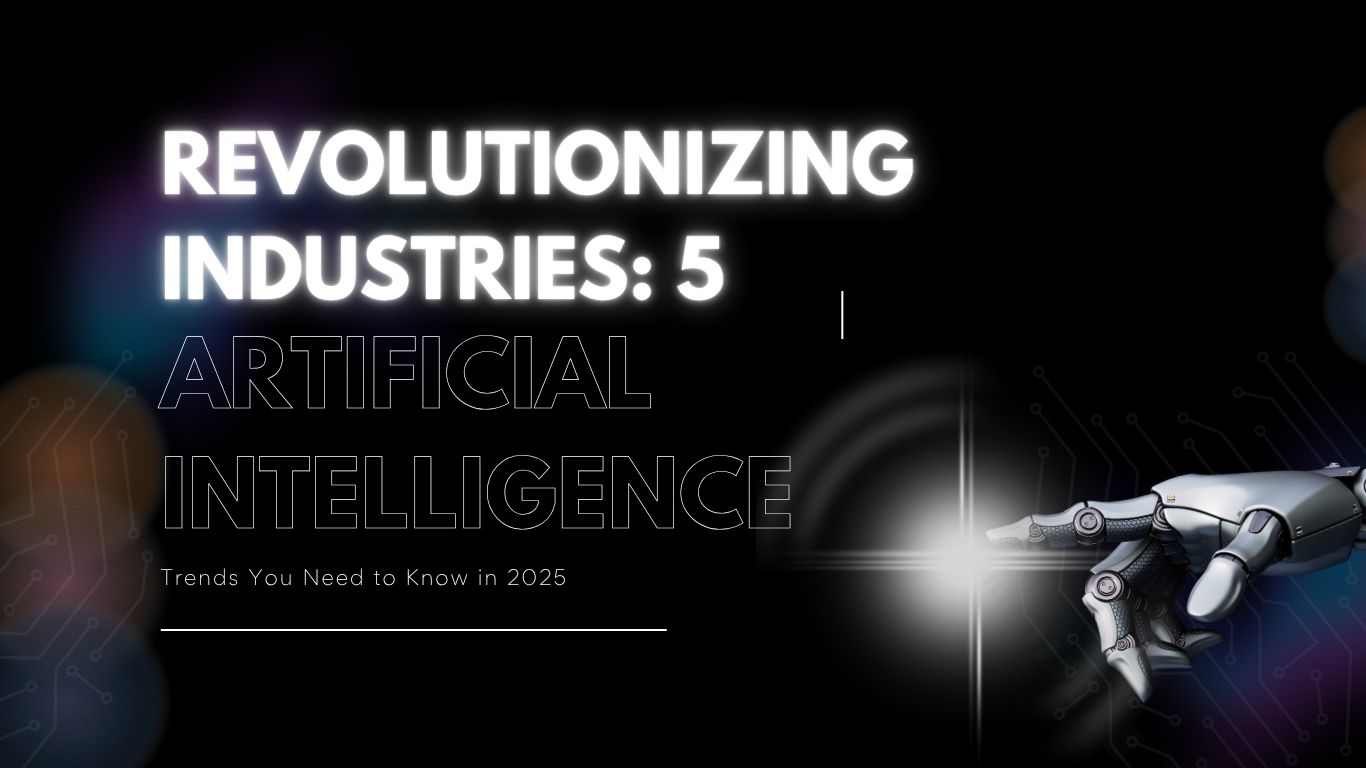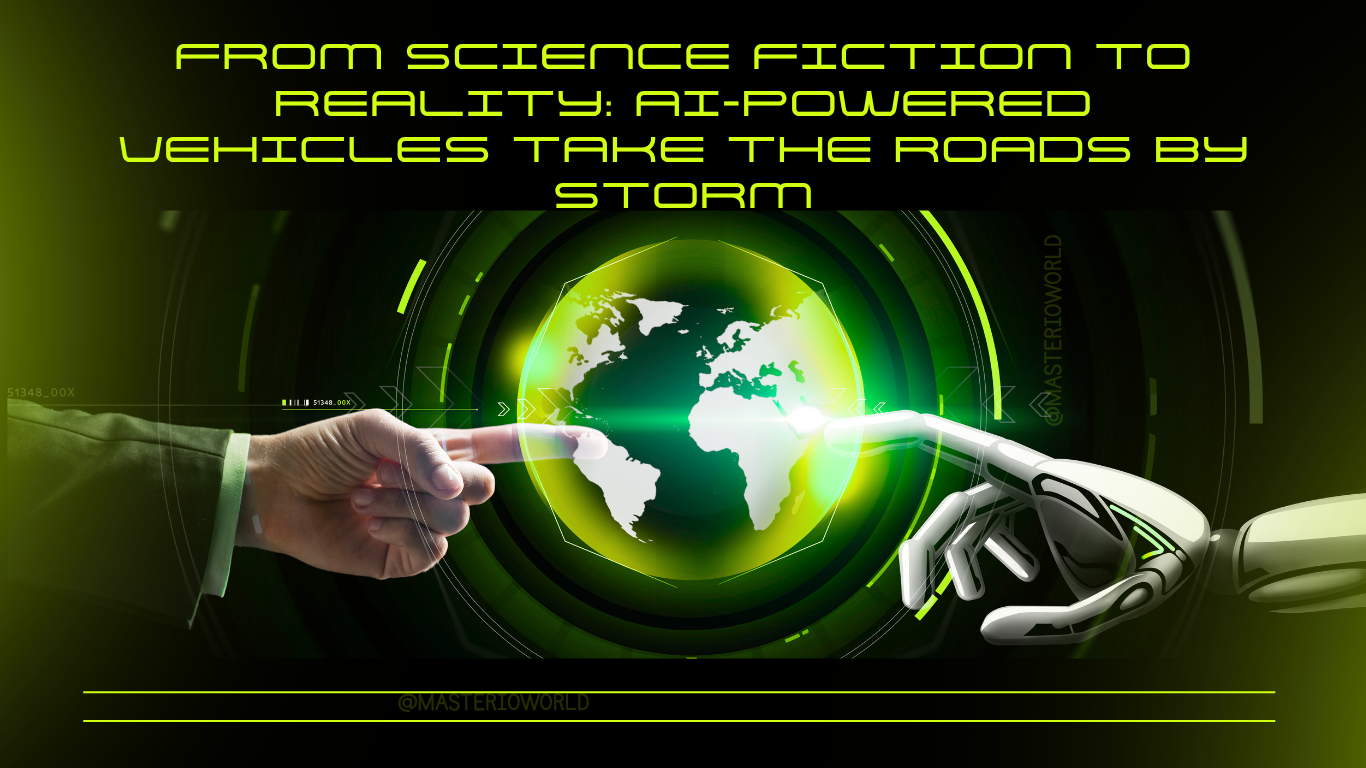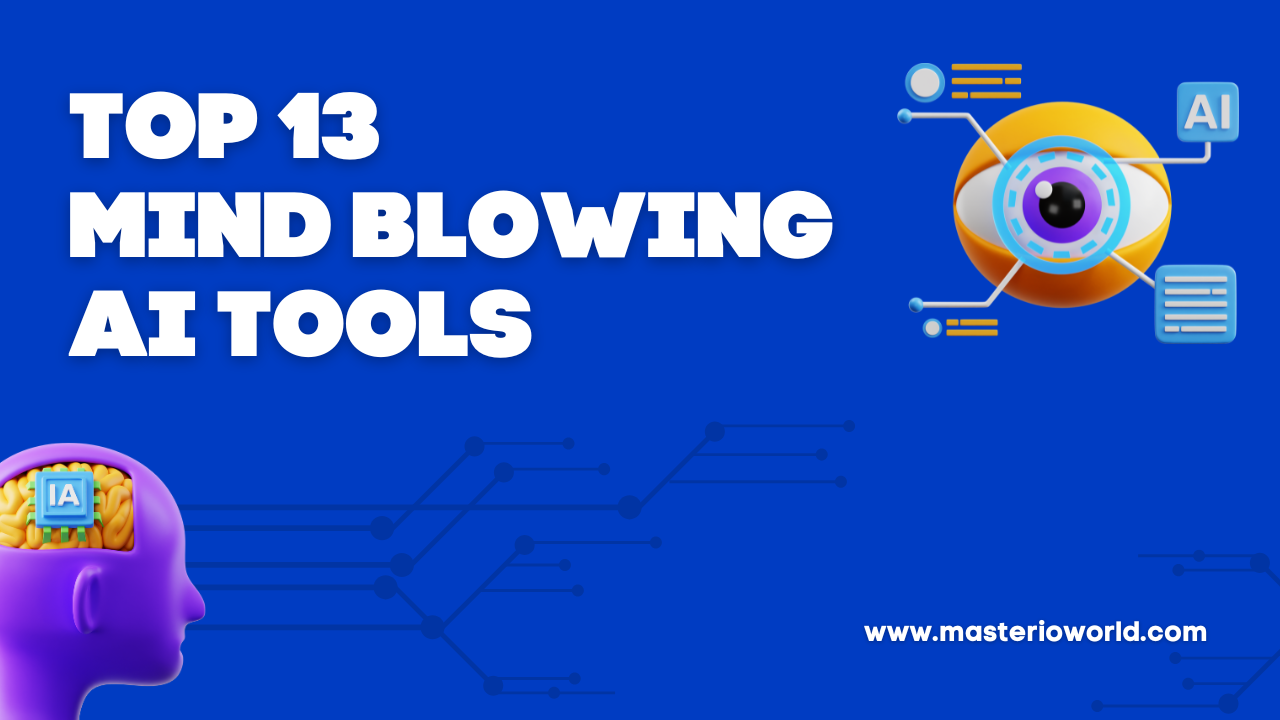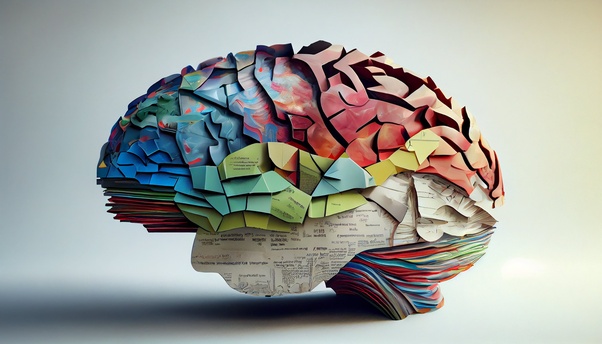Revolutionizing Industries: 5 Artificial Intelligence Trends You Need to Know in 2025
Revolutionizing Industries: 5 Artificial Intelligence Trends You Need to Know in 2025 Artificial Intelligence (AI) continues to advance rapidly, revolutionizing various industries and reshaping the way we live and work. As we step into 2025, it’s crucial to stay updated with the latest AI trends that are poised to make a significant impact. In this article, we will explore five key AI trends that are set to shape industries in the coming year and beyond. Introduction AI is no longer a concept confined to science fiction; it is now a reality that is transforming industries worldwide. Companies are harnessing the power of AI to enhance efficiency, improve decision-making, and unlock new opportunities. Let’s delve into the top five AI trends you should be aware of in 2025. Natural Language Processing (NLP) Natural Language Processing is a branch of AI that focuses on the interaction between computers and human language. NLP enables machines to understand and interpret human language, both written and spoken, and respond intelligently. In 2025, NLP will continue to evolve, enabling more accurate and natural language interactions with AI-powered systems, including chatbots, virtual assistants, and customer service applications. Computer Vision and Image Recognition Computer Vision and Image Recognition are AI technologies that enable machines to interpret and understand visual data. With advancements in deep learning algorithms and neural networks, computer vision is becoming increasingly sophisticated. In 2025, we can expect significant progress in applications such as facial recognition, object detection, and autonomous surveillance systems. Industries like retail, security, and manufacturing will benefit from these advancements. AI in Healthcare AI is revolutionizing the healthcare industry by enabling faster and more accurate diagnostics, personalized treatments, and efficient patient care. In 2025, AI will play a crucial role in analyzing vast amounts of medical data, identifying patterns, and assisting doctors in making informed decisions. Machine learning algorithms will help predict disease outcomes, detect anomalies in medical images, and support drug discovery, ultimately improving patient outcomes and saving lives. Autonomous Vehicles The autonomous vehicle industry is gaining momentum, and AI is at the forefront of this revolution. AI-powered self-driving cars are becoming increasingly sophisticated, equipped with advanced sensors, machine vision, and decision-making capabilities. In 2025, we can expect continued progress in autonomous vehicle technology, leading to enhanced safety, reduced congestion, and improved transportation efficiency. Reinforcement Learning Reinforcement Learning is a subfield of AI that focuses on training agents to make sequential decisions based on feedback from their environment. In 2025, we anticipate significant advancements in reinforcement learning algorithms, leading to breakthroughs in robotics, game playing, and optimization problems. This technology has the potential to revolutionize industries by enabling machines to learn and adapt in real-time, making autonomous decisions in complex scenarios. Conclusion Artificial Intelligence is reshaping industries at an unprecedented pace. In 2025, we will witness remarkable advancements in Natural Language Processing, Computer Vision, AI in Healthcare, Autonomous Vehicles, and Reinforcement Learning. These trends will bring about transformative changes, creating new opportunities and challenges. To stay ahead in this fast-paced era, businesses and individuals must embrace these AI trends and harness their potential to revolutionize the way we live and work. FAQs 1. What is Natural Language Processing (NLP)? Natural Language Processing is a branch of AI that focuses on enabling machines to understand and interpret human language. 2. How does Computer Vision work? Computer Vision involves using AI algorithms to enable machines to interpret and understand visual data, such as images and videos. 3. How is AI transforming healthcare? AI is transforming healthcare by improving diagnostics, enabling personalized treatments, and analyzing vast amounts of medical data to assist doctors in making informed decisions. 4. What are the benefits of autonomous vehicles? Autonomous vehicles offer enhanced safety, reduced congestion, and improved transportation efficiency by leveraging AI technology to make intelligent driving decisions. 5. What is reinforcement learning? Reinforcement Learning is a subfield of AI that focuses on training agents to make sequential decisions based on feedback from their environment, enabling machines to learn and adapt in real-time.




